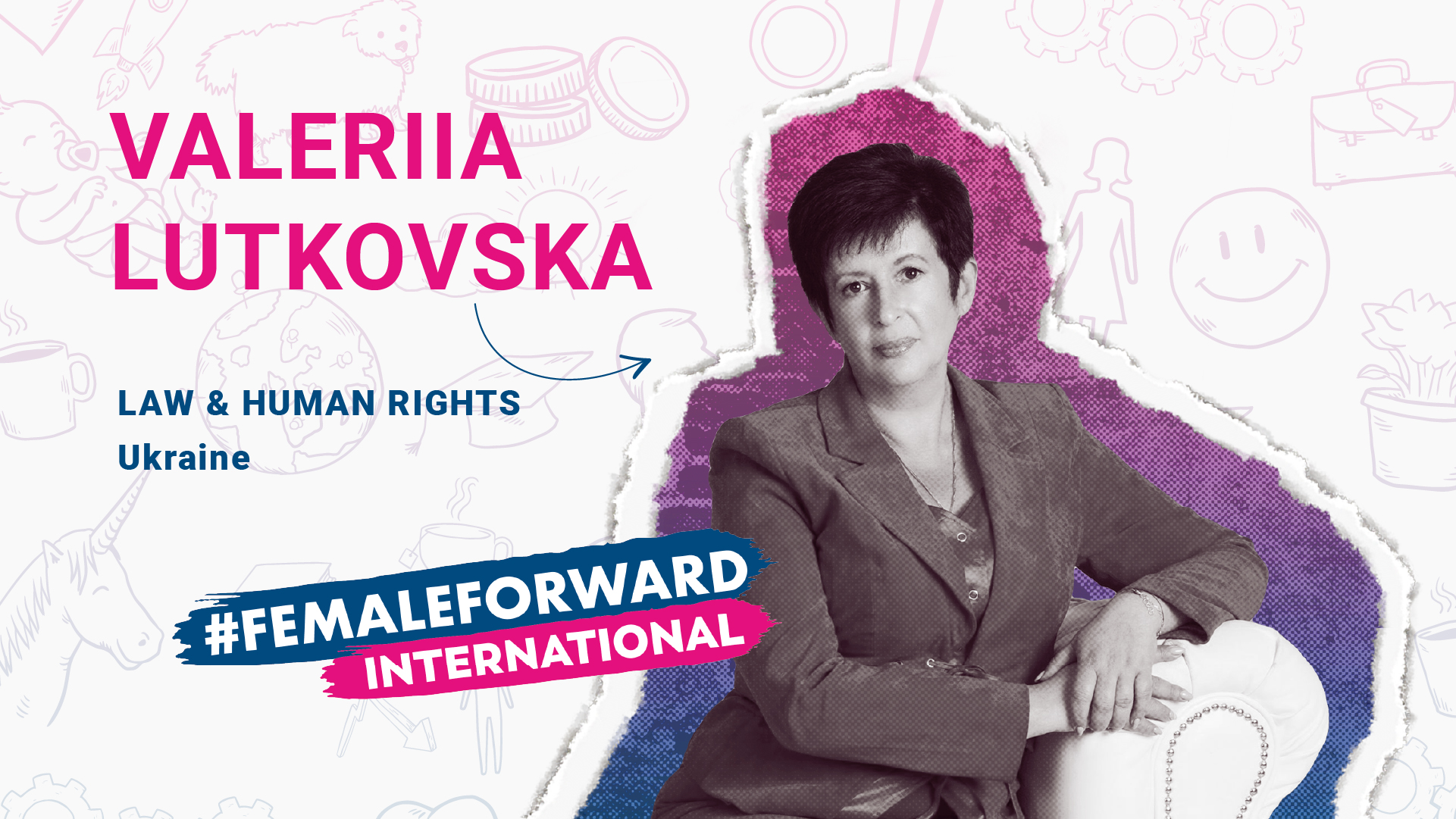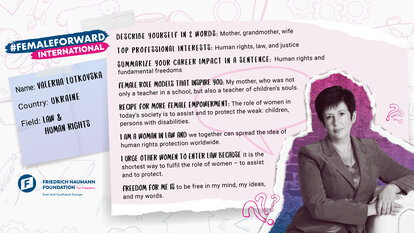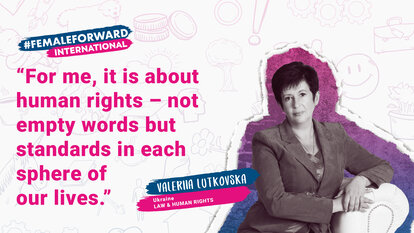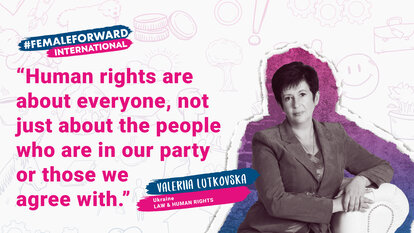#FEMALEFORWARDINTERNATIONAL
Meet Valeriia Lutkovska from Ukraine

Valeriia Lutkovska is the example of a freedom warrior: she might not agree with what you say, but she will fight for your right to say it.
“It is not complicated for me to be a woman in my profession,” says Valeriia Lutkovska when asked what it is like to be the woman who negotiates the release of prisoners from occupied Crimea or fights for the improvement of the conditions in the Ukrainian penitentiary system.
Lutkovska’s words are certainly a reflection of an ideal where a person establishes herself beyond gender. Her deliberate use of language reflects this too (Lutkovska has an excellent command of English, surely perfected during her long career as a diplomat): despite Wikipedia still listing her as the Ombudsman, she calls herself an Ombudsperson. Her life and career make it clear that clichés and stereotypes do not apply. And she is clear about it in a diplomatic fashion – imposing the rules of our conversation with no elaboration, firmly yet gently.

Lutkovska raised her daughter with the help of her mother during Ukraine’s Democratic Transition, while managing to finish two higher education curriculums: philology then law school. In 1999, she began her work with the European Court of Human Rights (ECHR). She was the head of the National Bureau for the Questions of the European Convention of Human Rights at the Ukrainian Justice Ministry. She affirms that her interest in human rights is longstanding, and, that while in government, she helped prevent human rights abuses.
She worked on harmonizing Ukrainian and European jurisprudence and made applying ECHR decisions a common practice in her home country. While she was Ombudsperson from 2012 to 2018, Lutkovska had to face the challenges of the Maidan movement and the annexation of Crimea by the Russian Federation. She fought for the rights of numerous internally displaced persons and victims of war, and she redefined her diplomatic role, paving the way for new international standards for the position of Ombudspersons in times of war.
Lutkovska’s work has also contributed to an improvement of the conditions in Ukrainian prisons, though since the beginning of the war, 30% of the prisoners, or over 13,000 persons, are currently in non-controlled territories. Thanks to negotiations led by her, about 300 prisoners were transferred back to Ukraine. She admits that in the grand scheme of things, this is a small number but that there is no small number when human lives are concerned.

Her most important work during her position as an Ombudsperson – what she calls “her lovely child” – is the national Preventative Mechanism against torture. It effectively opened the closed doors of the penitentiary system and the psychiatric hospitals, including institutions for children and the elderly. Her work on the Preventative Mechanism began in May 2012 and it proved extremely important during the Maidan movement, when a lot of people were detained in abysmal conditions and Lutkovska and her team had the opportunity to enter the places of detention and appeal to Parliament about conditions there.
For Lutkovska, it is important to educate Ukrainian society about the ideals of human dignity and the responsibility to protect it. This inspired her to work with Ukrainian civil society on educational initiatives which explain the procedures of fighting for one’s rights.

As an Ombudsperson, she joined a coalition of civic society organizations for the ratification of the Istanbul convention. A lot of women in Ukraine complain about domestic violence, and she took that problem to Parliament, urging MPs to ratify this convention and improve the situation. But she also has cases in which she fights discriminatory practices against men, for example, dealing with custodial rights during divorce proceedings.
What is mostly on her mind is the end of the armed conflict in the Ukraine. Her country’s situation pains her: the internally displaced people, those killed in combat, and the soldiers still protecting the territorial integrity of the country.
For her, as a lawyer, it is important to be ready for the time after the armed conflict. For this reason, in 2017 she began the preparation for “transitional justice”, a very specific area since there are plenty of international standards, yet each country has a specific approach to post-war justice. Lutkovska is concerned about the victims of the war not just in the strict sense, but also when it comes to returning soldiers suffering from PTSD, which could in turn affect Ukrainian households. There is still not a widespread debate on how to deal with these domestic issues, says Lutkovska. Ukrainian society is still very closed and paternalistic.
A woman of ideals and vision, Lutkovska also has her own private practice now that her years of diplomatic service are over. Recently she took on a controversial case defending what she describes as “a toxic political party with whose positions I do not agree.”
“The right of assembly – which is concerned in this case – is a general right, not just for you or for people who share the same ideology as you. It is about all of us, and I will protect the right of assembly even if I disagree with the political position. And this is one of many examples of the complexities of my field. You must be ready to defend human rights no matter what,” she concludes.
